Search
Remove Ads
Advertisement
Search Results
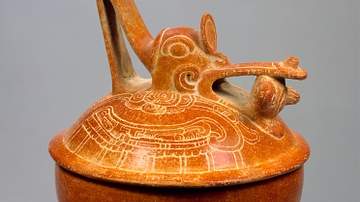
Image
Maya Tripod Bowl
3-4th century CE, Guatemala, Mesoamerica. Metropolitan Museum of Art A favored vessel type of the Maya lowlands was one made in the shape of a tropical bird, perhaps a cormorant, in the act of catching a fish in its beak. The bird's forehead...

Video
Dr. Mark Van Stone - How Maya Hieroglyphs are written - Demonstration
Mark Van Stone explains how Maya hieroglyphs are constructed, by writing a modern name in phonetic glyphs. Dr. Van Stone is an expert decipherer and calligrapher; author of "2012 - Science and Prophecy of the Ancient Maya" and co-author of...
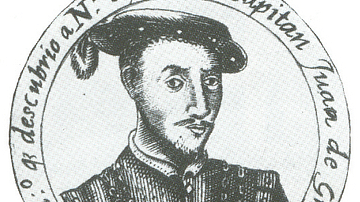
Definition
Juan de Grijalva
Juan de Grijalva (aka Grijalba, 1489-1527) was a Spanish conquistador who explored the eastern coast of Mexico in 1518. His notable achievements included a demonstration that the Yucatán Peninsula was just that and not, as previously thought...
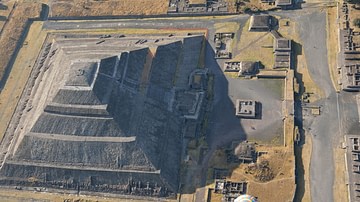
Definition
Teotihuacan
Teotihuacan, located in the Basin of Central Mexico, was the largest, most influential, and most revered city in the history of the New World. It flourished in Mesoamerica's Golden Age, the Classic Period of the first millennium CE. Dominated...
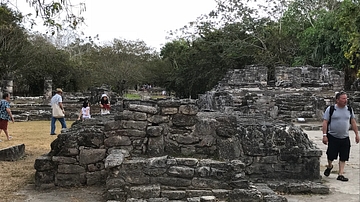
Image
The Maya Altar at San Gervasio
This structure had a ceremonial use for the Maya people as it lies in the middle of the plaza at San Gervasio, which is located on the island of Cozumel, Mexico. It therefore must have served as a dais from which the speaker addressed the...
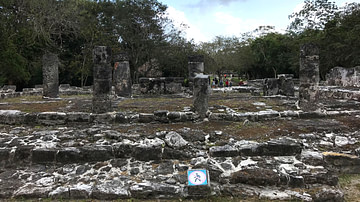
Image
The Maya "Columns" Structure at San Gervasio
This Maya structure located on the Mexican island of Cozumel at the archaeological site of San Gervasio has seven columns, a bench running along the inner walls, and a throne or altar in the middle of the room. The chambers along the side...
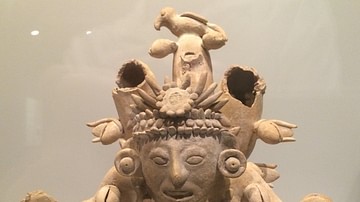
Image
Maya Diving Figure
A Maya diving figure from a lid of a ceramic vessel. Mexico, c. 1000-1100 CE. (St. Louis Art Museum, Missouri)
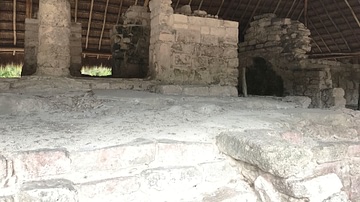
Image
The Maya "Murals" Structure at San Gervasio
Aptly named, this Maya structure contains fragmented murals that were painted with vivid colors of red, blue, ochre, and black. They were originally covered with geometric motifs, stepped lines, Grecians frets, and spirals. This structure...
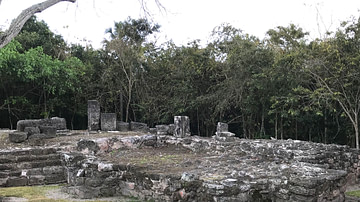
Image
Maya Ossuary Structure at San Gervasio
This structure located at the Maya archaeological site of San Gervasio on the Mexican island of Cozumel was so named as numerous human remains were found inside during archaeological excavation. The temple no longer exists, but it originally...
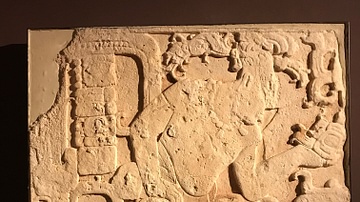
Image
Maya Noble Relief from Tabasco
This Maya relief depicting a nobleman is made from chalkstone, and it comes from what is present-day Tabasco, Mexico. It dates from the Late Classic Period around the year 780 CE. (Museum Rietberg, Zürich).